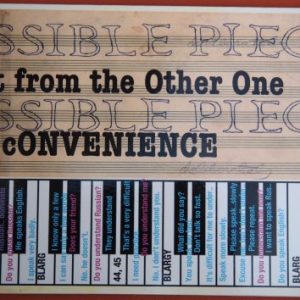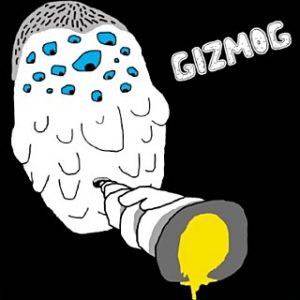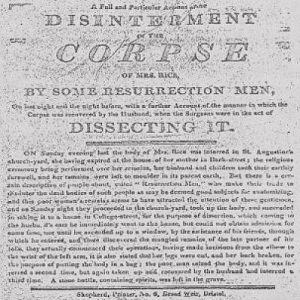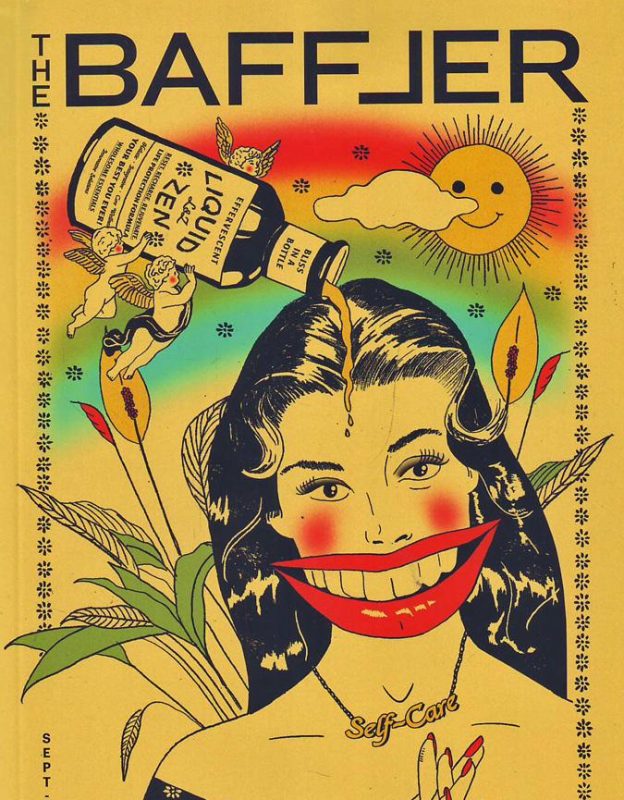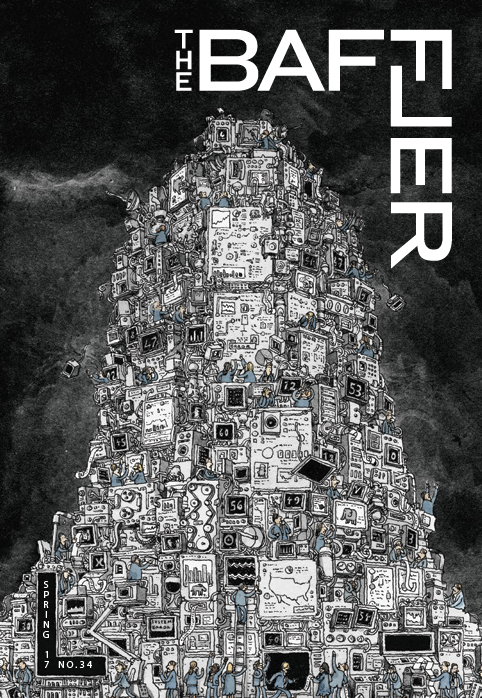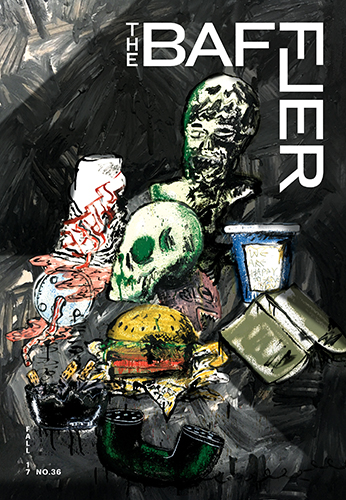The Baffler - # 45: Chronic Youth
In Baffler no. 45, the state of American adolescence is central as well as and our collective fascination with coming-of-age tales. An eclectic set of nostalgia trips, fact-finding missions, and theoretical explorations uncover a nation in a pervasive state of arrested development.
Alex Pareene studies MAGA teens and their adult advocates, who bend over backwards in order to defend not just their prep school princelings, but the entire social order that conflates goodness with status. After all, innocence is the exclusive provenance of those who can afford it, as Sarah Marshall makes clear in her essay on the darker side of Disney’s dream empire. Bryan Armen Graham offers a dispatch from the Daytona 500, where NASCAR is making a last-ditch bid to win over a younger, broader audience. He finds that “these efforts, while admirable, lay bare the uneasy push-pull underlying the sport’s overture to minority customers: can the black and Hispanic fans that NASCAR desires feel welcome in an infield festooned with symbols like Confederate flags and MAGA banners that create an unwelcome environment?”
Of course, our arts and letters are littered with adolescent notions and notions of the adolescent. Rod Davis and Frank Guan take on the literary figure of the teen in wide-ranging essays that take on Dostoevsky’s The Adolescent and Uwe Johnson’s Anniversaries. Tom Carson explores the connection between the famous (and infamous) teenagers of American literature and the battered shibboleth of American exceptionalism and ultimately comes up with a pretty good thesis: let’s just blame Mark Twain for everything. Elsewhere, J.W. McCormack dips a toe into the world of “Christploitation” movies, “a world saturated by Duck Dynasty, Mike Huckabee, and Fox News,” and Erik Hoel casts a wary eye on Netflix, whose CEO once said the company’s number one competition was sleep.
Miya Tokumitsu remembers My So-Called Life, the nineties show whose middle-class, high-school slacker heroine, Angela Chase, represented a version of adolescence that “seeks out a coherent cultural identity after the end of history, when all that seemed left to do was wait around for it to start again.” Of course, few of today’s teens feel free to wait around, pressured instead to become mini-moguls and would-be world changers. Liz Pelly offers an analysis of Teen Boss, “a magazine that doesn’t so much market to kids but rather convinces them to become marketers themselves.” Owen Davis anatomizes the cottage industry of high-priced college admissions consulting and Britta Lokting dives into the Instagram-centric world of teenage activists.
€12.00






